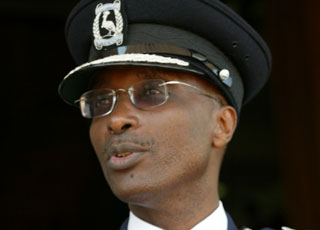
By Joe Powell
Corruption continues to be endemic in Uganda with bribes either solicited or expected in a startling 35% of service interactions. The first ever East African Bribery index found that Uganda has the dubious honour of having the highest impact bribery in the region.
This is measured by interactions in which services will be denied unless a bribe is paid. In dealings with the judiciary, for example, 63 % of respondents reported they had been denied services unless they greased the palms of an official.
The report also revealed that the country’s most sensitive sectors are some of the worst culprits, with 40% of bribes going on healthcare and security services. 68% of bribes were paid in order to gain access to services that are supposed to be already catered for by taxation. Uganda also boasts the highest compliance rate with 82% of people paying a bribe on demand. Only 2% of respondents refused to pay and then reported it to the correct authorities.
The result, according to Jasper Tumihimbise, head of the Anti-Corruption Coalition Uganda, is that ‘public service delivery is only for the rich and corrupt’. Speaking to The Independent he said ‘the leadership of this country is not committed to fighting corruption and it may be the thing that brings down the Movement.’ Tumihimbise also reserved special criticism for the Uganda Revenue Authority, which emerged as the 7th most corrupt institution in East Africa, way ahead of its counterparts in Kenya and Tanzania.
The research was carried out by Transparency International, in a manner similar to that of political polling companies. 3,516 people from across Uganda were interviewed, with 60% from rural areas and 40% from urban dwellings.
Abuses in the healthcare sector are perhaps the most shocking. Hospitals accounted for 12% of the total bribes paid, while the most frequent bribe demands come from TASO, the HIV/AIDS support organisation. Meanwhile 58% of visitors to Mulago only managed to secure services by paying a bribe of an average of sh31,000. Tumihimbise described corruption in healthcare as ‘this country’s biggest problem as it affects the local people who are dying because they can’t pay bribe’. Mulago public relations chief Eliphaz Ssekabira cited the police post in the hospital as a means to fight corruption and encouraged patients to report incidents of bribe soliciting. “We condemn it as hospital management” he told The Independent, ‘œbribery is a crime and all of us are responsible for stopping it”.
In terms of government ministries defence, lands and public service are the most compromised. The average size of a bribe paid at the Ministry of Public Service was an extraordinary Shs 681,666, with recruiters blamed for soliciting money from civil service applicants. At the Ministry of Defence 79% of people had to pay a bribe in order to access services.

Speaking to The Independent, the Minister of Ethics and Integrity, Nsaba Buturo, defended the ‘punitive regime’ in place to deal with corrupt officials. ‘What we’re witnessing is people who are in a position to help communities prioritising their own selfish interests’¦actually a miracle is needed to touch on professional thieves’ he said. Asked whether the leadership of the country, no stranger to corruption themselves, were doing enough to fight the scourge Buturo replied ‘leadership should come from the people who pay’. ‘There is a mindset problem’ he argued, ‘we need better resolve not pay bribes’.
Not for profit institutions are also high on the graft list. The Northern Uganda Social Action Fund, mandated to play a central role in rehabilitating the north, is the 5th most corrupt institution in the country. NGOs in general rank 20th, while religious organisations also make the list, with 8% of people expecting to hand over cash in their interactions with them.
There is one bright spot for Uganda’s reputation though. The humble post office is the least bribery-prone organisation in East Africa, with only 5% of people handing over cash for services.
 The Independent Uganda: You get the Truth we Pay the Price
The Independent Uganda: You get the Truth we Pay the Price


